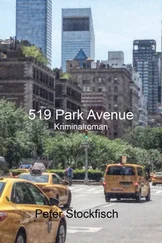The kid almost cracked, and he noticed that he enjoyed it. He accepted Aaron’s gratitude with a fatherly smile, but in their last bout he totally smoked him up. They always were fanatical, sparring seriously at the end of each training session — but this time he smelled blood. Grab him, reverse, grappling from the left to confuse him, high on his collar, his rigid wrist against Aaron’s hot, resistant neck. When they first started training, Sigerius could beat him literally single-handedly, he swept the mat with that gangly body, the empty gym echoed deliciously with the thuds. But as Aaron got used to his style, caught on to his tricks, his weaponry, he began to lose his edge; Aaron became fitter, started moving better, the twenty-five-year age difference started to show. (He recalled that time Joni came to watch them train. Up until their final match she stretched out, smiling and making faces, on the long, low bench under the wall racks, but by the time he and Aaron let go of each other a quarter of an hour later, she had bolted. She was already up in the gym’s canteen, beaming pompously and sipping a Diet Coke through a straw. “What a stupid sport,” she pronounced from her bar stool. “I had to either leave, or jump in and separate you two.” You haven’t seen anything , he thought.)
He was unleashed. Something from long ago had been roused, his killer instinct. Aaron kindled his bloodthirstiness. A hostility flowed through him that he had seldom felt since 1972. The mat was larger than the competition mats in the Nippon Budokan; he dragged the kid back and forth across the endless canvas, pulled him down, swept his legs out from under him, middling results, the bastard fought back hard, but he cornered him, tried to tear him down. They wrestled with their free arms, the kicks to the inside of Aaron’s ankles were mean and hard, several times he pulled the jacket up over the sweaty head. I’ll nail you, you little pimp . Grab, shake loose, grab again, drag — and now move in, uchi mata , he flung his leg between Aaron’s legs, tense it, the kid lay on his hip, skip, pull through, hard — no, back, and now, again. Yeah, now. The short-long floating, for a moment only his big toe touched the mat, Aaron flew, weighed nothing, there, bam , smack against the ground. Ippon . The smell of the dust that he’d beat out of the mat with his prey. That’s how he had floored Kiknadze, that’s how he made mincemeat of Maejima. Sigerius skipped farther on one leg, his good leg, the longer one, looking up at the ceiling he traced a celebratory semicircle.
“Come on, man, get up.”
He goes back into the hall. Taking large, careful steps, he climbs the stairs; the air gets thinner with each step. He is serving the truth. The landing presents four gray doors. Dull secondhand daylight seeps through the frosted glass at the top of the doorframes. He was up here once before, years ago, for the obligatory house tour. One of the doors is ajar, a green laundry rack hangs over its top edge; at the front, T-shirts, boxers, two pairs of jeans — nothing of Joni’s. Way at the back, a judo suit, his judo suit, the one he’d lent him. An unexpected wave of warmth flows through him, a reservoir of familial compassion. What the hell is he doing here? He wants that feeling back, he wants at least to revert to how it felt before all this mess.
Don’t go all soft, not now . The bedroom. He hastily inspects the stripped double mattress; underneath, curls of dust, a wadded-up T-shirt, an earplug. Behind the cupboard doors: men’s clothes straight from the spin cycle, complete chaos, he reaches around behind the piles. Nothing. On the bedside table, books, more earplugs and a nearly empty strip of pills: temazepam, he reads. When he turns around he stands face-to-face with himself in a full-length mirror; the light-gray linen of his summer suit is wrinkled from the train trip, his mustache is brushy, like a third eyebrow. Does he always look so … deathly? A nobody disguised as someone with a paying job, his persistent five o’clock shadow, the black, deep-set eyes milky and bloodshot from stress. Who does he look like? With a shock he realizes: like Wilbert, he’s got the same look Wilbert had after three weeks in jail. What would his son look like now, after six years in the slammer?
He goes back out onto the landing, glances into the bathroom at the back; mold is growing on the ceiling above the shower cubicle, the washing machine door is open, he roots around in the plastic laundry basket behind the door: towels, washcloths, and again: men’s clothes. On the plastic shelf above the yellowish washbasin is a square bottle of aftershave; without thinking he walks over, pulls off the cap and sprays some on his neck, a heavy, vaguely familiar scent.
Only now does it occur to him that most of the photos were taken in an attic, under a sloping roof. Back on the landing, he looks up at the ceiling for the first time: a brown hatch, secured with a copper-colored padlock. A short cord is attached to a metal ring in the wood, he can just reach it. Two rectangular indentations in the carpeting betray the footprints of a folding stair. You shove the stairs upward, and hey presto, no one thinks twice about a little old attic.
And now?
He searches agitatedly for the key. First he rummages through the bedside table drawers. Stacks of train tickets, business cards, magazines, ballpoint pens, yellowed newspaper supplements, pill strips, pill boxes, half-chewed loose pills, an open bottle of Bokma jenever in the one drawer; in the other, nothing but a hot-water bottle and two Singapore Airlines sleeping masks he’d kept for Joni. He picks up the books, reinspects all the cupboard shelves, in vain; walks downstairs, fishes out anything that feels hard from the jackets on the hallway coatrack, sifts through four chaotic kitchen drawers under the garlicky-smelling metal countertop, opens all the cabinets, feels, gropes, looks — and discovers, between a tin of cinnamon and a two-pound bag of salt, a key.
His heart bounces ahead of him up the stairs. He drags a wooden chair from a small utility room with an ironing board and a mountain of wrinkled washing and stands on it. A stab of pain shoots through his shorter leg. The key is too big. “Goddamn.” He climbs down off the chair, picks it up by one of the armrests, and slams it against the floor. One of the legs breaks off in splinters. Panting with rage, he pushes his face into the washing on the rack. The fresh scent of laundry soap flows into his nose. Calm down . He grabs his judo suit and bites into the washed-out collar.
That aggression. The situation makes him angrier and more unrestrained than he considers acceptable. All his life he’s been proud of his ability to channel his anger — and now he smashes an innocent, defenseless piece of furniture? Control over your inner current — he’d learned that from Geesink. Exploding at just the right moment is just as tricky as not exploding. Deciding for yourself when you call upon that intoxicating mixture of concentration and volatility, and when you decide to call upon it, you attach the battery cables to your muscles at once, you feed the day-in-day-out judo mentality with pure aggression, no more reflection, no neocortex: volt and ampere, let the flow of electrons do the work. He preserves crystal-clear memories of the first time he detonated at just the right moment — it must have been in ’62—and, like it or not, he’s transported back to that smallish gym above an automotive garage on the Jansveld in downtown Utrecht. Geesink was already world champion, he was still doing military service, nineteen and green; green and gullible, just like now.
He’d only been practicing judo in Utrecht for six months when one evening three guys from Tun-Yen, a club from Amsterdam, showed up. He knew they were a strong bunch, but what made this unannounced visit spectacular was that Jon Bluming was a Tun-Yen member. That Bluming, nowhere to be seen, but you heard about him all the more: ever since Geesink had turned the judo world upside down in Paris, Bluming strutted around openly challenging the brand-new world champ. Every chance he got, he ranted that he would chew Geesink up and spit him out: “I’ll fold him up like a lawn chair.” He was quoted in Panorama as saying that Geesink wasn’t the best in the world, in Japan he knew plenty of judokas who turned up their nose at tournaments where Europeans took part, and Bluming claimed to have taught every last one of them a lesson. Geesink just let Bluming shoot off his mouth. It didn’t faze him.
Читать дальше












